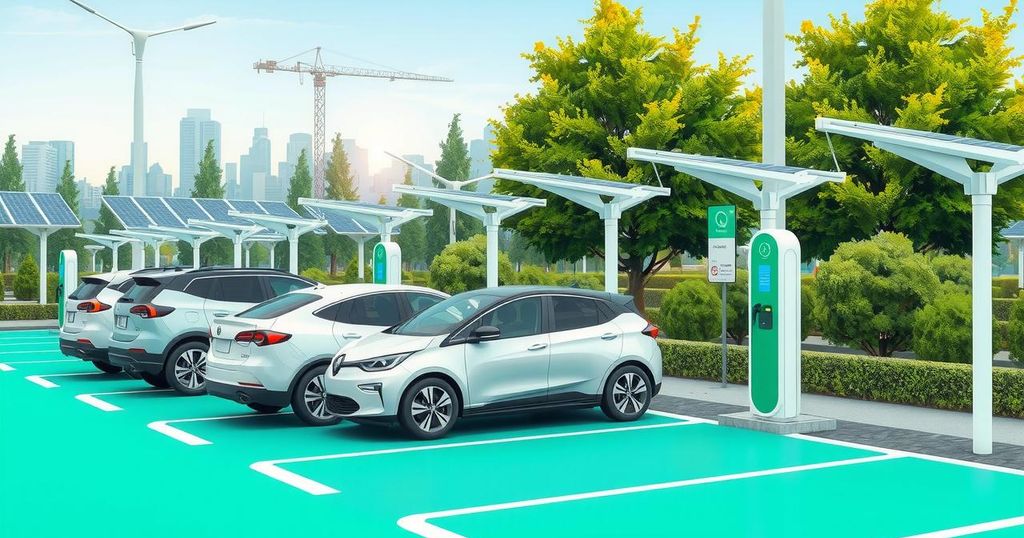Luckin Partners with METS to Strengthen Electric Mobility in Nigeria
- Luckin Innovation appoints Amb. Olakunle Johnson as Nigeria rep.
- Johnson’s role includes boosting sales and overseeing local assembly.
- Partnership with METS aims to transform Nigeria’s electric mobility.
- The project plans to introduce solar-powered vehicles into Nigeria.
- A nationwide network of charging stations is being developed.
- 10,000 electric vehicles will aid in food distribution logistics.
- Digital training for ‘feeding marshals’ to improve efficiency.
- The initiative supports Nigeria’s vision for a greener economy.
Luckin Appoints Nigerian Representative to Boost Sales
Luckin Innovation Technology Co. Limited has taken a significant step in its expansion strategy by appointing Amb. (Dr) Olakunle Johnson as its official representative for Nigeria, according to the company’s CEO, Wang Licai. Johnson will play a crucial role in driving innovation and sustainable mobility within the country. This appointment coincides with a strategic partnership with the Matan e-Transportation System (METS), which is a flagship project of the MFBF Group. Together, they aim to transform Nigeria’s transportation landscape by focusing on electric mobility.
Collaboration with METS to Enhance Electric Mobility
With Angela Xie, the Overseas Sales Director of Luckin supervising the announcement, it marks a pivotal moment for the company’s market presence in Africa. Ambassador Johnson is not just a representative; he is an accomplished entrepreneur, leading multiple initiatives like the MATAN Food Bank Foundation and the Automated MATAN Food Security Initiative. His new responsibilities include overseeing Luckin’s sales operations in Nigeria, coordinating the establishment of a local electric vehicle assembly plant, and setting up a dedicated showroom to display the company’s electric vehicle lineup. METS, in collaboration with Luckin, envisions a future of clean mobility, with a focus on integrating advanced electric vehicle technology into Nigeria’s market.
Building Infrastructure for Sustainable Transportation
The partnership involves not only the introduction of electric cars but also includes tuk-tuks and two-wheelers, all powered by solar energy and high-performance batteries. The collaboration will facilitate the establishment of a network of solar charging stations across Nigeria, promoting clean energy usage and significantly reducing dependency on fossil fuels. This infrastructure is anticipated to support easier adoption of electric vehicles in what has been traditionally a petroleum-reliant economy. Furthermore, Ambassador Johnson has been mandated to ensure that the local assembly plant will not only enhance vehicle production but will also contribute to job creation, further bolstering Nigeria’s industrial growth.
Social Impact and Job Creation through EV Adoption
In a significant move towards inclusive economic empowerment, MFBF has revealed plans to acquire 10,000 electric vehicles aimed at enhancing community farming and logistics for food distribution. These vehicles will be essential for transporting agricultural goods to food banks, complementing ongoing free food distribution programs across Nigeria’s various local government areas. Along side this, digital training initiatives for ‘feeding marshals’ will be initiated to guarantee effective distribution, aligning with the broader goal of combating food insecurity in Nigeria. The METS project is expected to create numerous jobs across the electric vehicle ecosystem, from manufacturing to maintenance and infrastructure support, contributing towards Nigeria’s transition to a greener economy and global climate action goals.
In conclusion, Luckin’s partnership with METS, led by Ambassador Johnson, marks a significant stride toward transforming Nigeria’s transportation system. By focusing on electric mobility, local production, and community-oriented initiatives, both organizations are working to make sustainable transportation not just a vision, but a reality. This initiative not only aims to create jobs and reduce carbon emissions but also aligns perfectly with Nigeria’s need for sustainable development in the face of global climate challenges.




Post Comment